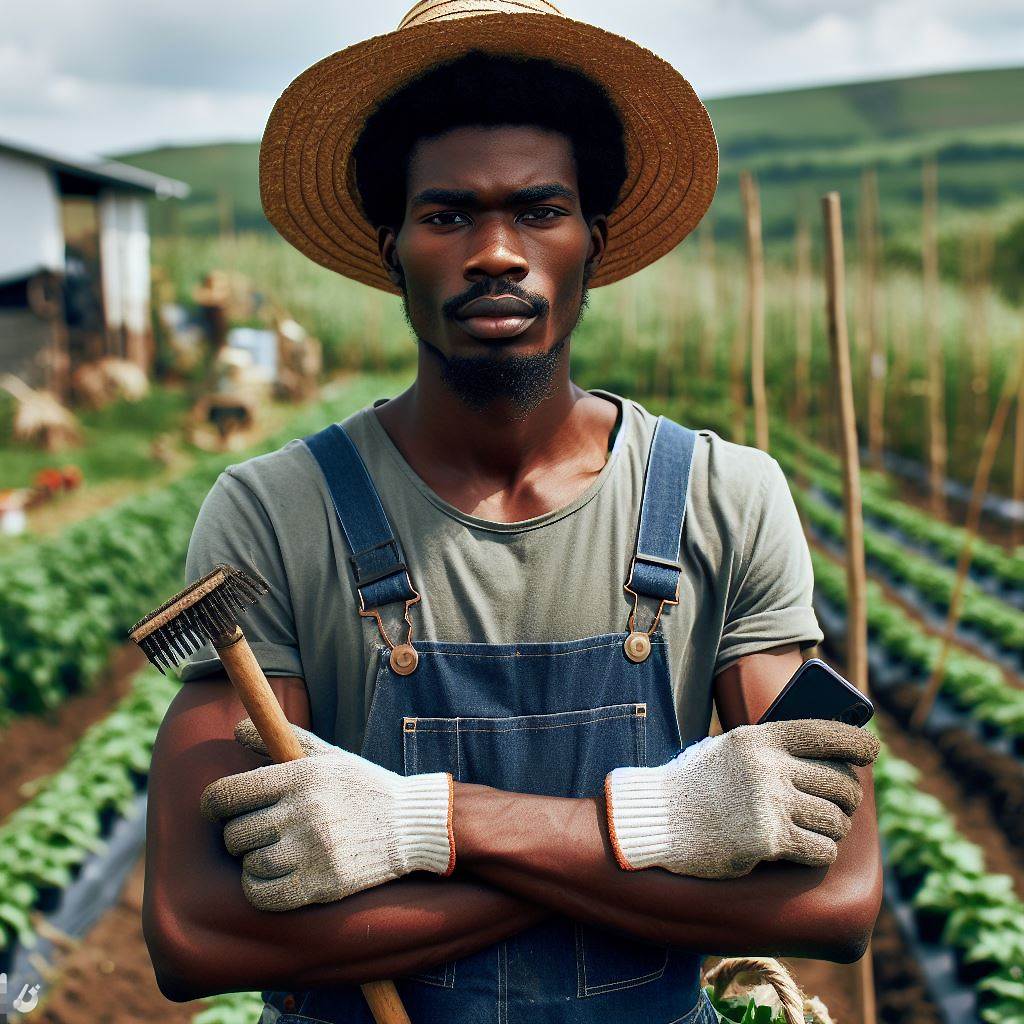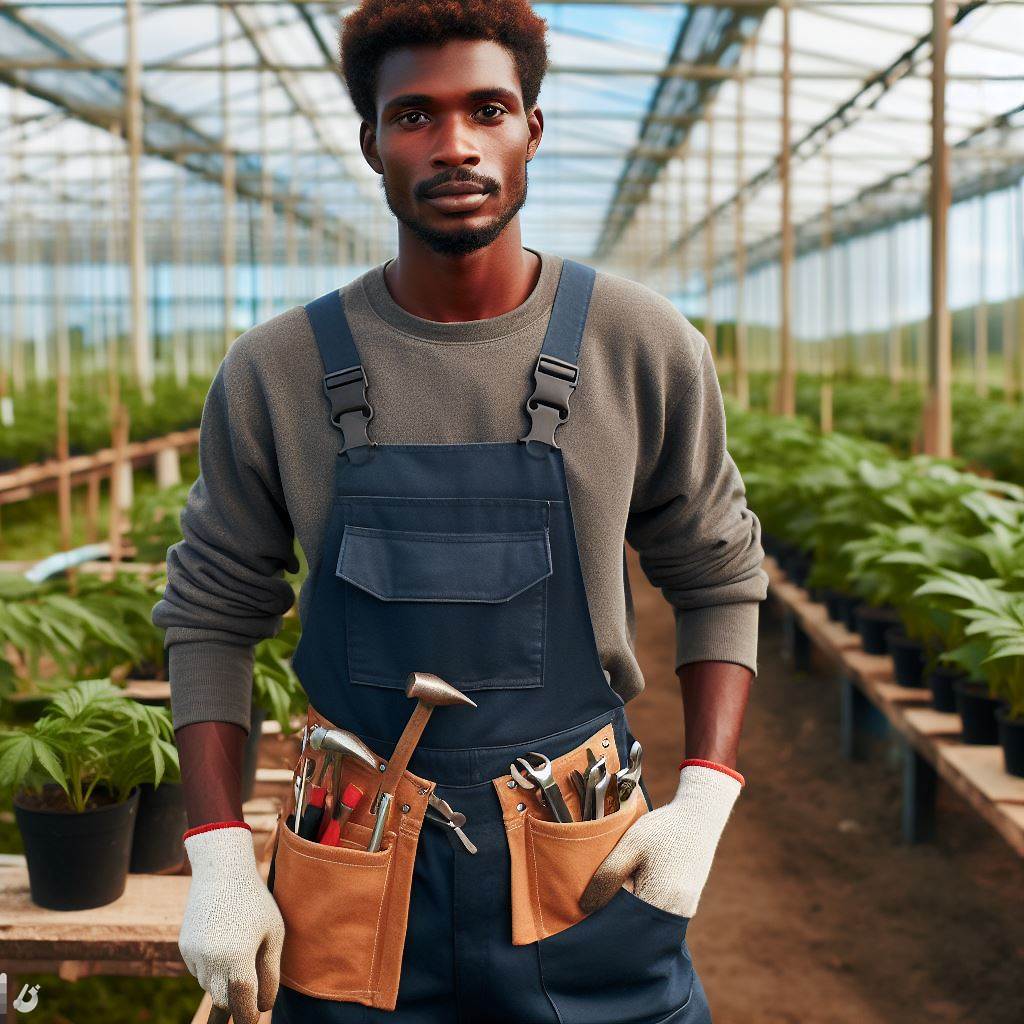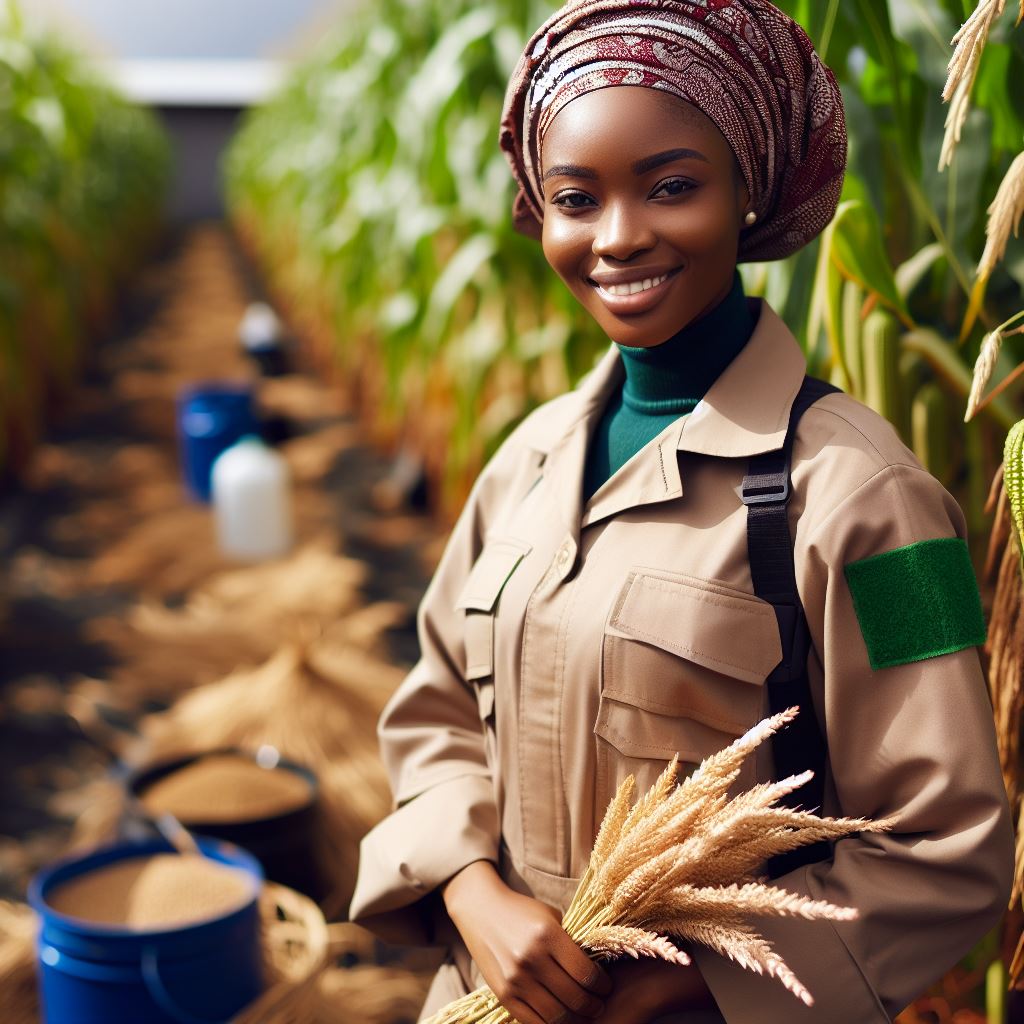Introduction
Impact of Local Culture on Animal Breeding Practices: Animal breeding practices in Nigeria reflect a rich tapestry woven by the threads of local culture. Understanding the intricacies of these practices necessitates a brief overview.
Brief Overview of Animal Breeding Practices in Nigeria
Nigeria, with its diverse ecosystems, boasts a spectrum of livestock rearing methods. From traditional pastoralism to modern techniques, the nation’s approach to animal breeding is as varied as its landscapes.
Local communities, deeply ingrained in agricultural traditions, play a pivotal role in shaping breeding practices.
The pastoral Fulani, for instance, employ a nomadic lifestyle, moving their cattle across vast expanses to optimize grazing opportunities.
In contrast, sedentary communities, influenced by agricultural cycles, engage in more stationary practices.
Here, the intertwining of local culture and breeding is evident in the careful selection of animals suited to the region’s climate and terrain.
Importance of Local Culture in Shaping These Practices
Local culture acts as a compass, guiding breeding decisions. The choice of livestock is not solely based on economic considerations but is deeply rooted in cultural significance.
Certain breeds hold symbolic value, reflecting status and heritage.
Moreover, traditional knowledge, passed down through generations, molds breeding strategies.
Indigenous wisdom, honed over centuries, informs decisions on breeding seasons, feeding practices, and disease management.
The communal nature of Nigerian societies further amplifies the impact of culture.
Collaborative efforts in animal husbandry, often rooted in cultural ceremonies, strengthen social bonds and promote the exchange of valuable breeding insights.
In essence, the impact of local culture on animal breeding practices in Nigeria is a dynamic interplay, where tradition and innovation converge, ensuring the sustainability of these practices in a rapidly changing world.
Overview of Nigeria’s Local Culture
Diversity of ethnic groups in Nigeria
- Nigeria is a country known for its rich cultural diversity.
- With over 250 ethnic groups, each has its unique traditions and practices.
- These ethnic groups include the Hausa, Yoruba, Igbo, Fulani, and many others.
Influence of traditional beliefs and practices on everyday life
- Traditional beliefs and practices play a significant role in Nigeria’s local culture.
- These beliefs are deeply rooted in the people’s everyday lives and affect various aspects.
- They shape the social interactions, customs, and even animal breeding practices.
- For instance, the Fulani people consider cattle rearing as a vital part of their culture.
- They have developed unique breeding practices passed down through generations.
- This includes selective breeding to produce cattle with desired traits.
- The Yoruba people also have traditional beliefs related to animal breeding.
- They believe that certain animals possess spiritual significance and divine connections.
- This belief influences their decision on breeding, slaughtering, and consuming animals.
- The Igbo people, on the other hand, have specific animal sacrifices as part of their rituals.
- Animals are selectively bred and offered to deities to seek blessings and protection.
Overall, Nigeria’s local culture is characterized by its diverse ethnic groups and the influence of traditional beliefs and practices on everyday life.
Animal breeding practices, in particular, are deeply intertwined with these cultural aspects.
Read: Sustainable Farming and Agri-Tech: The Nigerian Experience
Role of Animals in Nigerian Culture
Significance of animals in religious rituals and ceremonies
- Animals play a crucial role in Nigerian religious practices, representing spirituality and beliefs.
- They are often sacrificed as offerings to honor ancestors or appease deities.
- Different animals are chosen based on their symbolic meanings and perceived spiritual powers.
- These rituals strengthen the connection between humans and the spiritual realm.
- Animal sacrifices symbolize purification, atonement, and the establishment of spiritual harmony.
Symbolism of animals in traditional folklore and myths
- Nigerian folklore and myths are rich with animal symbolism, which teaches moral lessons and cultural values.
- Animals are often anthropomorphized and possess human-like traits in these stories.
- The turtle, for example, represents wisdom and perseverance in Yoruba folklore.
- The leopard symbolizes power, agility, and authority in various Nigerian tribes.
- These symbolic representations of animals reflect societal values and ideals.
Overall, animals hold great importance in Nigerian culture, playing vital roles in religious rituals, ceremonies, and traditional folklore.
They are seen as sacred beings, deserving respect and reverence. The symbolism attached to different animals serves as a means to convey cultural values and beliefs to future generations.
Cultural beliefs in Nigeria actively shape animal breeding, influencing how animals are raised, chosen, and utilized in different contexts.
Understanding the role of animals in Nigerian culture is essential to comprehend the complexities of animal breeding and husbandry practices in the country.
Read: Connecting Agri-Tech Grads: Alumni Networks in Nigeria
Traditional Animal Breeding Practices
Traditional animal breeding practices in Nigeria hold immense significance and are deeply rooted in the local culture.
These practices involve the intricate selection, mating, and breeding of indigenous livestock breeds, guided by the wealth of traditional knowledge and skills passed down through generations.
Importance of indigenous livestock breeds
- Indigenous livestock breeds play a vital role in Nigeria’s agricultural landscape.
- These breeds have evolved over time to adapt to the local environment, climate, and diseases.
- They possess inherent resilience, which allows them to thrive in challenging conditions.
- Indigenous breeds are also well-suited to the specific needs and preferences of local communities.
Methods of animal selection, mating, and breeding
- Animal selection is carefully carried out based on specific traits desired by the community.
- Physical characteristics, such as size, color, and body structure, are important factors in selection.
- Behavioral attributes, such as temperament and adaptability, also play a significant role.
- Mating is purposefully arranged, considering the compatibility and desired genetic traits.
- Breeding is often managed through controlled natural mating or selective breeding techniques.
Traditional knowledge and skills passed down through generations
- Traditional knowledge is accumulated wisdom acquired over centuries of practical experience.
- Elders in the community impart this knowledge to younger generations through oral traditions.
- They teach breeding techniques, animal care, and the importance of preserving indigenous breeds.
- Knowledge of local medicinal plants for treating livestock ailments is also passed down.
- These skills are invaluable in maintaining the diverse genetic pool and the sustainability of livestock farming.
The impact of local culture on animal breeding practices in Nigeria is profound.
The importance placed on indigenous livestock breeds, the meticulous methods of selection, mating, and breeding, as well as the transmission of traditional knowledge and skills, all contribute to the preservation and enhancement of Nigeria’s livestock sector.
Read: Innovations in Farming: The Core of Nigeria’s Agri-Tech Training
Socioeconomic Factors Influencing Animal Breeding
Impact of Cultural Beliefs and Values on Breeding Decisions
- Cultural beliefs and values play a significant role in shaping animal breeding practices in Nigeria.
- Traditional practices such as selective breeding based on cultural beliefs and rituals influence breeding decisions.
- Some cultures believe that specific animal breeds possess spiritual or magical qualities, leading to preference for certain breeds.
- Cultural taboos may prohibit the breeding or consumption of certain animals, affecting breeding practices.
- Cultural practices that prioritize larger herd sizes for social status influence breeding decisions.
- Generations actively pass down community traditions, reinforcing specific breeding practices for animals.
- Gender norms shape animal breeding, assigning tasks based on traditional roles, impacting the process significantly.
Role of Economic Considerations in Animal Breeding Practices
- Economic factors also play a crucial role in animal breeding decisions in Nigeria.
- Farmers consider the market demand for specific breeds and make breeding decisions accordingly.
- Profitability is a key consideration in animal breeding, as farmers aim to maximize their economic gains.
- Farmers evaluate the cost of breeding, including expenses for feed, healthcare, and maintenance, before making breeding decisions.
- Income levels and financial resources influence the types of animals farmers choose to breed.
- Access to credit and financing options can determine the scale and scope of animal breeding operations.
- Economic incentives, such as government subsidies or grants, can encourage farmers to engage in specific breeding practices.
- Market competition and price fluctuations also impact animal breeding decisions, as farmers strive to remain economically viable.
- Economic factors often intersect with cultural and traditional beliefs, resulting in a complex blend of influences on breeding practices.
In short, the impact of local culture on animal breeding practices in Nigeria is significant. Cultural beliefs and values influence breeding decisions, as selective breeding based on traditions and rituals is common.
Economic considerations, including market demand and profitability, also play a crucial role in shaping breeding practices.
Both cultural and economic factors intersect to shape the complex landscape of animal breeding in Nigeria.
Read: Exploring Postgraduate Opportunities in Agri-Tech in Nigeria

Challenges and Opportunities
Modernization and its effect on local breeding practices
- Rapid urbanization and industrialization have led to changes in animal breeding practices in Nigeria.
- Traditional methods of breeding are being replaced by more modern and commercially-driven practices.
- The demand for meat, milk, and other animal products has increased, leading to a shift towards high-yielding breeds.
- Local breeds, which are well-adapted to the Nigerian climate and resistant to diseases, are being neglected.
- Modern breeding practices often focus on improving productivity and efficiency rather than preserving indigenous breeds.
- This can lead to the loss of unique genetic traits and reduce biodiversity in the animal population.
- The use of artificial insemination and genetic selection may lead to the dominance of a few elite breeds.
- Indigenous communities that rely on traditional animal breeds for their livelihoods are negatively impacted by modernization.
- They may lose their self-sufficiency and become dependent on external sources for their animal breeding needs.
- The shift towards modern breeding practices also brings challenges in terms of infrastructure, training, and access to resources.
- Small-scale farmers may struggle to afford modern technologies and may lack the knowledge to effectively implement them.
Preservation of indigenous breeds amidst changing cultural dynamics
- Despite the challenges posed by modernization, there are opportunities to preserve indigenous breeds in Nigeria.
- Developing policies and regulations that prioritize the conservation and improvement of local breeds is crucial.
- Encouraging public awareness and education about the importance of indigenous breeds can promote their preservation.
- Collaborations between government agencies, research institutions, and local communities are essential in this regard.
- Establishing breed registries and breeders’ associations can help in the documentation and promotion of indigenous breeds.
- Preservation efforts should focus on maintaining the genetic diversity and resilience of local breeds.
- Promoting sustainable and organic farming practices can also contribute to the preservation of indigenous breeds.
- Indigenous breeds often possess traits that make them well-suited for organic and agroecological farming systems.
- Empowering local communities by providing training, resources, and access to markets can support the preservation of indigenous breeds.
- Promoting eco-tourism and cultural exchange programs that highlight indigenous breeds can generate income for communities.
- Embracing traditional knowledge and practices while adopting sustainable technologies can strike a balance between preserving local culture and meeting the demand for animal products.
In essence, the modernization of animal breeding practices in Nigeria brings both challenges and opportunities.
While there is a risk of losing indigenous breeds and their unique genetic traits, concerted efforts can preserve and enhance their value.
Balancing the need for increased productivity with the preservation of local culture and genetic diversity is crucial for sustainable animal breeding practices in Nigeria.
Recent Initiatives for Sustainable Animal Breeding
Efforts to integrate modern breeding techniques with traditional practices
- Collaboration between researchers, local farmers, and traditional animal breeders to exchange knowledge and practices.
- Identification of successful traditional breeding methods and the incorporation of scientific knowledge to improve them.
- Training programs conducted by experts to educate traditional breeders about modern breeding techniques.
- Development of hybrid breeding programs that combine the strengths of traditional and modern methods.
Role of government and NGOs in promoting sustainable breeding practices
- Government-led initiatives to provide financial support and technical resources for sustainable breeding practices.
- Incentive schemes implemented by the government to encourage traditional breeders to adopt modern techniques.
- NGOs working closely with local communities to raise awareness about the benefits of sustainable breeding practices.
- Funding provided by NGOs to support research and development of sustainable breeding methods.
- Collaborative efforts between government agencies and NGOs to establish breeding centers and laboratories for research and training.
- Policy interventions by the government to regulate and promote sustainable breeding practices.
Furthermore, the government has implemented policy interventions to regulate and promote sustainable breeding practices.
These policies ensure the compliance of breeders and establish guidelines for sustainable breeding methods.
By setting standards and promoting sustainable practices, the government plays a crucial role in ensuring the long-term success of animal breeding initiatives in Nigeria.
Basically, recent initiatives have focused on integrating modern breeding techniques with traditional practices and the role of government and NGOs in promoting sustainable animal breeding in Nigeria.
hese efforts have led to improved productivity and genetic diversity, benefiting both breeders and the overall agricultural sector.
By strengthening collaborations and providing support, Nigeria is well-positioned to achieve sustainable animal breeding practices in the future.
Case Studies on the Impact of Local Culture
Examples of cultural practices shaping animal breeding in specific Nigerian communities
- In the Fulani community, cattle are highly valued and considered a status symbol, leading to selective breeding for sturdy and large-sized cattle.
- The Yoruba community practices dog breeding for specific traits such as agility and loyalty, resulting in unique local breeds.
- In the Hausa community, poultry farming is heavily influenced by cultural beliefs, with specific rituals performed during breeding.
- The Ibibio community has a tradition of fish farming, where specific species are bred in specially designed ponds for sustenance.
- The Kanuri community engages in camel breeding, mainly for transportation purposes due to their cultural nomadic lifestyle.
Success stories and lessons learned from these case studies
- The Fulani community’s selective breeding has resulted in hardy cattle that are resistant to diseases and fetch higher market prices.
- The Yoruba community’s dog breeding practices have created breeds renowned for their intelligence and loyalty, sought after as guard dogs.
- The Hausa community’s rituals during poultry breeding are believed to ensure healthy and disease-resistant birds, contributing to better farm yields.
- The Ibibio community’s fish farming techniques have led to sustainable fish production, providing a stable source of income and nutrition.
- The Kanuri community’s camel breeding practices have enabled efficient transportation in the harsh desert environment, aiding livelihoods.
Lessons Learned
- Cultural practices play a significant role in shaping animal breeding methods, reflecting the needs and preferences of specific communities.
- The success of these breeding practices highlights the importance of preserving local cultural traditions and knowledge.
- Cultural beliefs and rituals associated with breeding can impact animal health and productivity, requiring careful consideration and scientific interventions if necessary.
- The diverse breeding practices across Nigerian communities demonstrate the adaptability and resilience of local cultures and their ability to meet specific needs.
- Documenting and promoting these successful case studies can contribute to the preservation of indigenous knowledge and foster sustainable animal breeding practices.
Essentially, the impact of local culture on animal breeding practices in Nigeria is profound and varied.
Transform Your Career with Expert Guidance
Get personalized mentorship consulting that’s tailored to your unique path. Our expert advice is actionable and exclusive.
Get StartedDifferent communities have distinct cultural practices that influence their breeding methods for various animals.
From cattle to dogs, poultry to fish, and camels, these case studies demonstrate the significance of cultural traditions in shaping successful breeding techniques.
By recognizing and preserving these practices, Nigeria can maintain its rich cultural heritage while promoting sustainable and efficient animal breeding methods.
Conclusion
In the end, Nigeria’s rich tapestry of local cultures plays a pivotal role in shaping animal breeding practices.
The influence is evident in the diverse methods employed by different communities, reflecting a deep connection between people and their environment.
From the nomadic Fulani communities in the north, with their emphasis on cattle rearing, to the southern communities’ poultry and fish farming traditions, each region’s practices are a testament to the impact of local culture.
This cultural imprint is not merely a historical artifact but an active force guiding breeding decisions and practices today.
Understanding this cultural influence is essential for effective animal husbandry.
Breeders must recognize and respect the cultural nuances that shape preferences for certain breeds or husbandry methods.
This awareness allows for the development of sustainable practices that align with the cultural values of the community.
Preserving cultural heritage within breeding practices is not just about nostalgia; it’s about maintaining a delicate ecological balance.
The traditional knowledge passed down through generations contains valuable insights into local ecosystems and animal behavior.
Ignoring these cultural cues could lead to unsustainable practices that harm both the environment and the livelihoods of local communities.
In the ever-evolving landscape of animal breeding, acknowledging the significance of local culture is a step toward fostering harmony between tradition and innovation.
It’s a call to action for researchers, policymakers, and breeders to collaborate in a way that honors the past while building a resilient and sustainable future for animal breeding in Nigeria.




